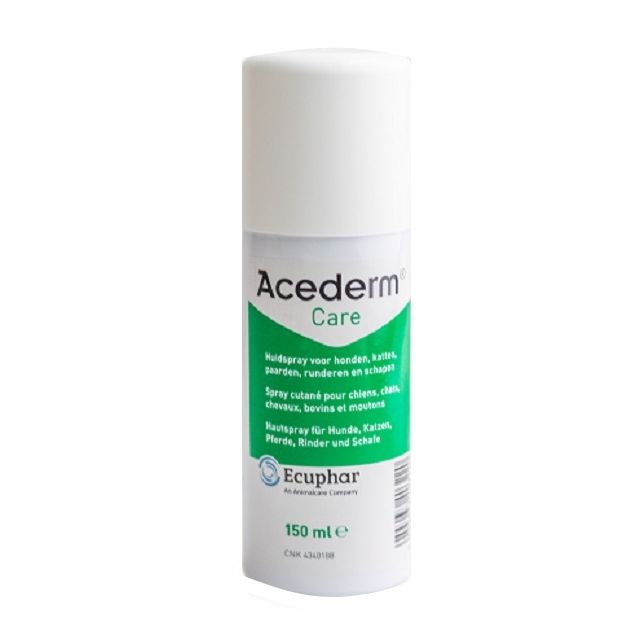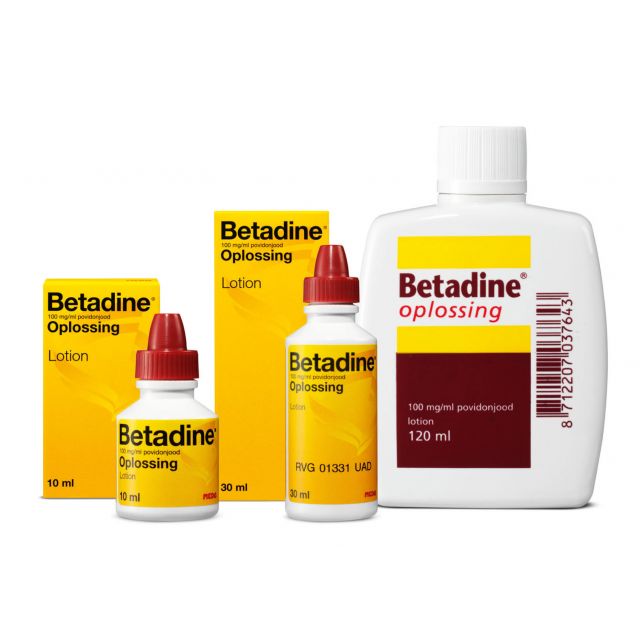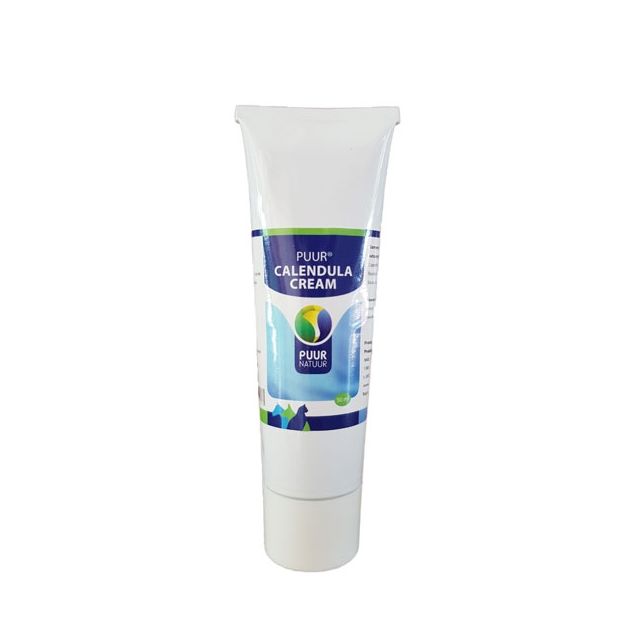First aid for cats
Just like for yourself, accidents can happen to your cat in the blink of an eye. Many things you can solve at home or at least start with a supportive treatment before you can see the vet. It's wise to put together a first aid kit for your cat so that you have the necessary supplies at home in case something happens.
Wounds in cats
Especially cats that go outdoors often come home with injuries. Fighting with the neighbor's cat, an awkward jump, sharp branches - the cause can be anything. Wounds in cats that stay indoors are often caused by the cats themselves. A cat that has itchiness can quickly injure itself. By far the most common cause of itchiness is having fleas. Step one in case of itchiness is often treatment with a well-working flea treatment, such as Vectra Felis.
Important with wounds is to prevent your cat from further injuring itself. By using a Medical Petshirt or a collar, your cat can no longer lick or scratch the wound. Also, a bandage around, for example, a wound on the leg prevents licking. Make sure not to tie the bandage too tight. The Trixie First Aid Kit contains various supplies, including gauze compresses and bandages.
A wound that smells bad in an outdoor cat may indicate a burst fight abscess. Cats have dirty bacteria in their mouth, which means a cat bite almost always gets infected. This usually happens a few days after the fight. Abscesses can be very painful, and your cat can also really be sick, with fever and a loss of appetite. When the abscess is "ripe," it can burst. Sometimes, that's the first thing you notice as an owner, and that can be scary because often they are quite big holes! A cat with an abscess is preferably treated by the vet, who may open and flush the abscess if necessary and give your cat antibiotics and painkillers. If you suspect your cat has a burst abscess, you can clean the wound yourself with Maxani Cleanser Spray or rinse with Vetramil rinsing fluid based on honey before going to the vet.
Small and larger wounds and irritated skin can benefit greatly from honey ointment. This works soothingly, mildly antibacterial, and supports wound healing. Also, calendula ointment works soothingly.
Help! My cat has a tick
Owners often find ticks on their cat very worrying. And the cat then finds the removal less fun again... A tick remover or tick hook is indispensable in your first aid kit. To prevent you from fiddling after every visit to the garden, a spot-on product against ticks such as Frontline or a Seresto collar during the warmer months is very handy.
Inflamed ears in cats
If your cat shakes her head or scratches a lot at an ear, it may indicate an ear infection. This is always a reason for a vet visit. The vet can examine the ear canal from the inside with an otoscope, determine the cause of the ear infection (such as bacteria, yeast, ear mites, or a polyp) and especially see if the eardrum is intact. Giving ear drops with a ruptured eardrum can be dangerous! Cleaning a cat's ear is usually not necessary. The ears should be a bit greasy to catch pathogens. If your cat has really dirty ears, use a safe ear cleaner like Epi-Otic ear cleaner or Monoclean. In case of mild redness of the earlobe or ear canal, Dermiel ear drops based on honey can have a soothing effect.
An eye infection in cats
If your cat wakes up every morning with "crust" in the corners of her eyes or has teary eyes, you can clean the eyes with a special mild eye cleaner such as Bogacare Perfect Eye Cleaner or Clean Ocular. If the insides of your cat's eyelids are slightly redder than normal or if she has quickly sensitive eyes, a vitamin A eye ointment like Ophtosan helps protect your cat's eyes. However, if your cat is squinting with one or both eyes, if the discharge from the eyes is greenish-yellow, if you see a change in the eye itself (such as a different color, different reflection, haze, dull or brown spot, or uneven pupils), or if your cat is also unwell, go to the vet for inflamed eyes.
A loose, torn, or ingrown cat nail
Nail problems are common and can be quite painful. Loose pieces of nail should be removed, and in the case of an ingrown nail, cutting it is the solution. A fine nail clipper should definitely be included in your first aid kit.
Diarrhea in cats
Diarrhea can have many causes and usually goes away on its own. If your cat eats and drinks well, is fit, does not vomit, and there is no blood in the stool, you can watch diarrhea for a few days. Psyllium fibers in Iso-Gel help thicken the stool, and probiotics like Purina Pro Plan FortiFlora or Protexin Pro-Kolin Advanced support the intestinal flora.
When to see the vet urgently?
Many things you can solve at home or watch for a while. But it's good to know what really are emergencies where you should immediately call the vet for advice:
- A male cat that cannot urinate.
- Persistent vomiting.
- Severe lethargy or weakness.
- Unsteady gait.
- Difficulty breathing: in cats, this manifests as faster breathing than normal, often with significant movements of the abdomen, and breathing with an open mouth.
- Trauma: for example, a collision, a fall from a great height, entrapment (tilt-and-turn windows are notorious), attack by a dog. Internal damage is not always visible from the outside.
- A non-progressing birth.
- Severe bleeding wound.
- Not eating and/or drinking for longer than a day.
- An epileptic seizure lasting longer than 10 minutes or multiple seizures per day.
- The inability to use one or more limbs.
- Constipation.
- Suspicion of poisoning or after ingesting a foreign object.
Cats may have nine lives, as the saying goes, but it's still good to be prepared for any accidents! If you have any questions about our products or about first aid for your cat, please contact us.




